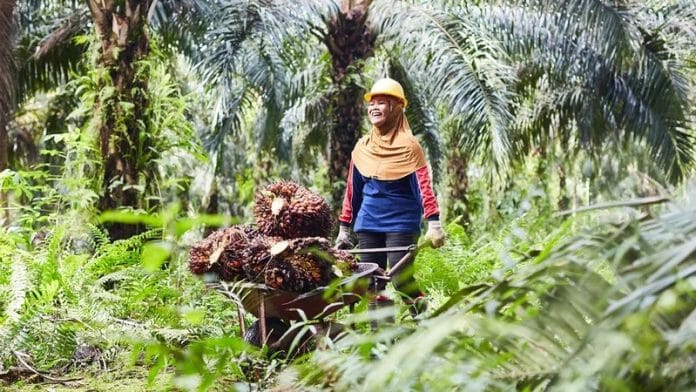RHB Research (RHB) recently visited KLK and FGV Holdings (FGV) plantation-related facilities in Sabah. Overall, the research house saw no signs of tree stress, with both players expecting a strong recovery to productivity in second half 2023, albeit offset by aggressive replanting activities. RHB maintains the sector at Neutral.
“We recently took clients on a 4-day trip to Lahad Datu, Sabah to visit a few plantation-related facilities, including KLK’s refinery, estates, mill and nursery as well as FGV’s estates, mill, nursery, refinery, biomass power plant, and jetty at the Felda Sahabat complex. The site visit enabled us to have a first-hand look at both upstream and downstream segments of the palm oil plantation, covering the whole workflow – from nursery, estate and mill to refinery and replanting as well as logistics, workers’ housing and schools,” said RHB in a recent report.
RHB understands that both the KLK and FGV estates that they visited are still seeing enough rainfall despite the hot weather, with no major signs of visible tree stress. Both companies’ estates were muddy and wet when they arrived, indicating that the area had recently experienced rainfall, while the fruits on the trees looked abundant.
Crude palm oil mills of both companies that we visited are currently running at low utilisation rates of 40- 56%. This is due to lack of feedstock (FFB) as a result of ongoing replanting activities in the area. Sabah has the highest area of trees above 25 years old in Malaysia, with 12.3% above 25 years and 23.5% aged 19-25 years.
Both companies that RHB visited have their own nurseries to ensure a sufficient supply of seedlings, as they are intensively undertaking replanting activities at certain parts of their estates.
KLK intends to replant more than 3,000 hectares of palm oil area for the next three years in Lahad Datu, which will require at least 444k seedlings. FGV is planning to replant 7,000 hectares in the financial year 2023 and another 10,000 hectares in the financial year 2024 in Felda Sahabat.
RHB notes that the current replanting cost to maturity has risen to RM23-37k per hectare from RM18-25k per hectare three years ago, due to the higher cost of fertiliser, labour and planting materials.
“Refineries of both companies that we visited mainly export their products, with 90-100% of output shipped to countries like Japan, Korea, the Philippines, Pakistan and India. We note that FGV only sources crude palm oil internally, as there are seven mills within Felda Sahabat while KLK only has one mill that is operational in Lahad Datu, so it sources crude palm oil both internally and externally,” said RHB.
Post site visit, RHB made no changes to their earnings forecasts and Neutral sector weighting. RHB expects sector earnings to decline further quarter-on-quarter in quarter two 2023, on lower crude palm oil prices and weak productivity.
While RHB is currently reviewing their 2024 crude palm oil price assumptions, they continue to prefer the more integrated players with KLK, IOI Corp, Wilmar and Golden Agri as Top Picks.









